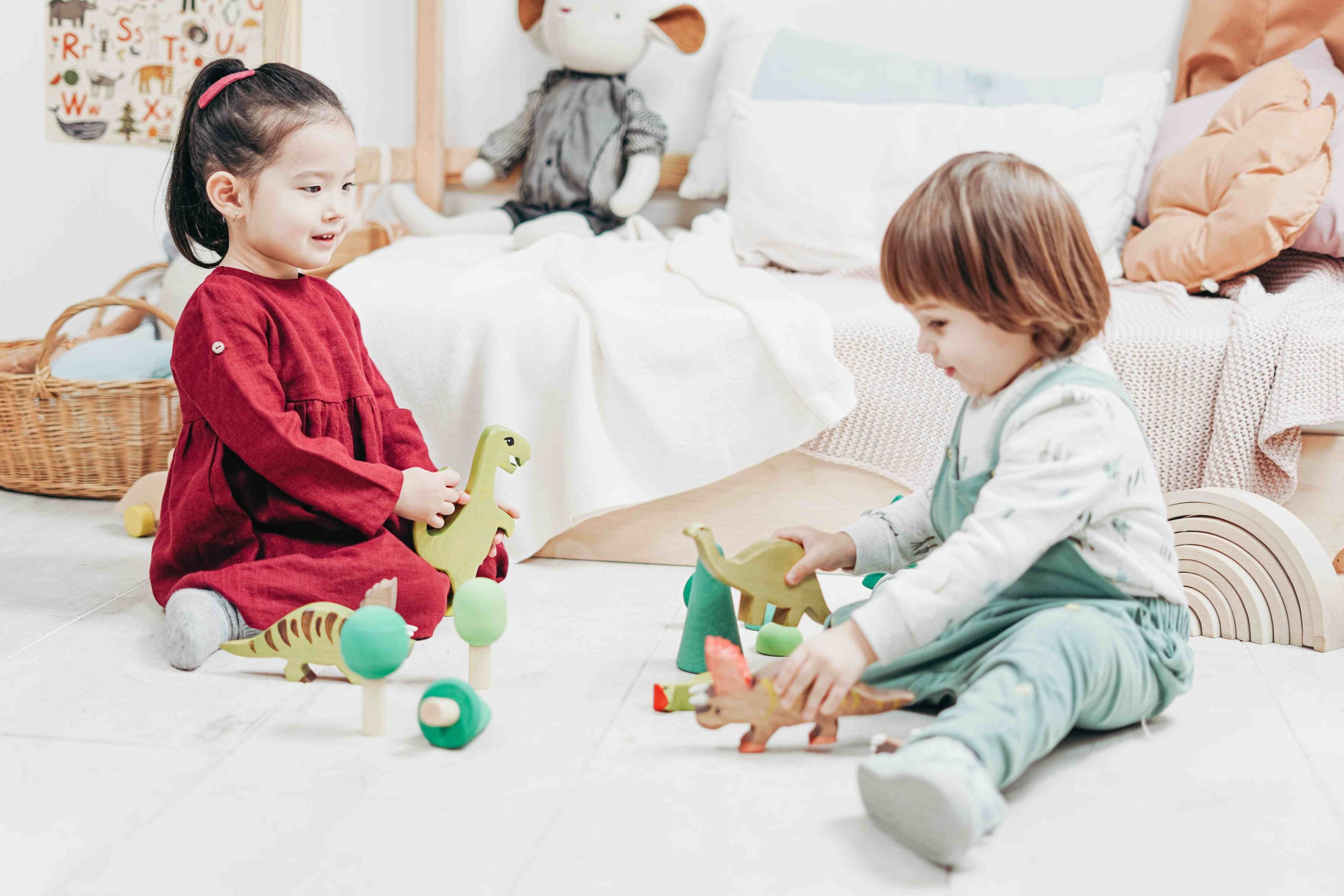
The Value of Parallel Play for Young Preschoolers
Preschoolers continually learn and acquire new abilities as they grow and develop. Play is one of the most important ways that toddlers learn and develop. Play helps young preschoolers develop their social, emotional, and cognitive abilities in addition to being a pleasurable activity. Parallel play is a sort of play that is especially significant for preschoolers.
Understanding Parallel Play
How does parallel play work?
Preschoolers who play simultaneously, but not necessarily with one another, are said to be engaging in parallel play. Preschoolers may use the same toys or do the same tasks while playing in parallel, but they are not always interacting with one another. Instead, they may only observe, copy, or play independently of one another.
Importance of Parallel Play
Why is parallel play crucial for young preschoolers?
For a variety of reasons, toddlers need to engage in parallel play. It first aids in their social skill development. Preschoolers are still learning how to be in the company of others and how to share toys and space during parallel play, even if they may not be engaging with each other directly.
Parallel play also aids in the linguistic development of preschoolers. They may watch and mimic their peers’ words and movements while they play together, which may aid in the development of their own language abilities.
Third, parallel play aids in the cognitive development of preschoolers. They may pick up new techniques for playing with toys or participating in activities that they may not have previously considered as they watch and mimic their peers.
Encouraging Parallel Play
How may parents and other adults encourage concurrent play?
Even though it could appear like a lonely pastime, parents and other adults can be a big help to preschoolers when they engage in parallel play. The following advice can help you support parallel play:
- Give preschoolers a range of toys and activities to select from since this increases their likelihood of engaging in parallel play.
- Preschoolers are more likely to play in parallel when they feel protected and encouraged, so provide a safe and encouraging setting.
- Parents and other adult caregivers may serve as role models for preschoolers, teaching them how to share and take turns.
- Encourage communication by asking open-ended questions and giving feedback.
Advantages of Parallel Play
For preschoolers, parallel play provides a number of advantages. Here are just a few:
- Social skills development
- Language development through observation and mimicry
- Cognitive skill development through watching and copying peers
The Role of Parallel Play in Emotional Development
Parallel play aids in the social and cognitive development of preschoolers, but it also has a significant impact on emotional growth. Preschoolers may feel a variety of emotions during parallel play in a secure and non-threatening setting. They are able to express their feelings without worrying about being judged or suffering repercussions, whether they are joyful, disappointed, or even enraged.
Encouraging Parallel Play in Preschoolers with Autism
While parallel play is a valuable skill for all toddlers, preschoolers with autism may benefit most from it. Creating a regulated and predictable setting is one strategy to promote parallel play in toddlers with autism. Offering a variety of sensory toys and activities is another approach to promote parallel play. Additionally, it’s critical to provide preschoolers with autism social tales and visual cues to help them comprehend parallel play and how to participate in it.
How Parallel Play Helps Develop Executive Functioning Skills
Cognitive processes known as executive functioning abilities enable us to organize, plan, and control our behavior. There are many ways that parallel play might aid toddlers in the development of executive functioning abilities. Preschoolers must first plan and organize their activity in order to participate in parallel play. Second, parallel play requires flexible thinking in toddlers. Third, preschoolers must exercise self-control when participating in parallel play.
Suggestions for Encouraging Parallel Play
It might be difficult to encourage parallel play in preschoolers, particularly if they are not used to playing with others. To promote parallel play and make it a joyful experience for everyone involved, parents and other caregivers might utilize some advice. Give preschoolers a range of toys and activities to select from, make the surroundings supportive, set clear expectations, demonstrate good behavior, allow for solitary play, and encourage communication.
Common Errors Regarding Parallel Play
Although preschoolers often engage in parallel play, there are still many misunderstandings about it. It is untrue that preschoolers who play simultaneously are antisocial. While toddlers who play in parallel with others are not interacting with people in a direct way, they are nevertheless watching and copying the behaviors of their classmates. This is also untrue; preschoolers who play simultaneously are not learning anything. While preschoolers may be able to play simultaneously without direct adult supervision, it is nevertheless crucial for adults to watch over the play space and make sure that preschoolers are protected and supported.
In conclusion, preschoolers’ development of play involves parallel play, which is crucial. It enables kids to acquire new skills, investigate their surroundings, and grow in their social and emotional intelligence. Parallel play may give the impression that preschoolers are not engaging with one another, but they are still picking up knowledge and skills from their peers. To promote parallel play, parents and other caregivers must establish clear expectations, provide a supportive atmosphere, and exhibit good behavior themselves. Additionally, parents and other caregivers may better assist preschoolers as they develop their social and emotional abilities by knowing the myths surrounding parallel play. Parents and other adults who care for young preschoolers may assist them in acquiring the skills necessary for success in school and in life by embracing parallel play and enabling it in a positive and supportive manner.


